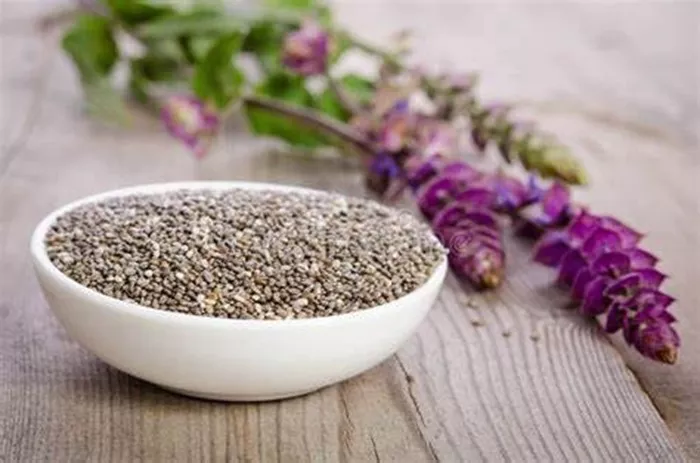Skincare is a crucial aspect of maintaining healthy and radiant skin. The frequency of your skincare routine depends on several factors, such as your skin type, age, lifestyle, and specific skin concerns. One common question that arises is, How Many Times a Week Should I Do Skin Care? In this article, we will explore in detail how often various skincare steps should be performed to achieve the best possible results for your skin.
Cleansing
Cleansing is the foundation of any skin care routine. It helps to remove dirt, oil, makeup, and impurities from the skin’s surface. For most people, cleansing should be done twice a day – in the morning and at night.
In the morning, cleansing helps to remove any sebum or debris that has accumulated overnight. A gentle cleanser is usually sufficient. Avoid using harsh soaps or cleansers that can strip the skin of its natural oils and disrupt the skin’s pH balance. Look for cleansers that are labeled as “non-comedogenic” and suitable for your skin type. For example, if you have dry skin, a creamy or hydrating cleanser is preferable. If you have oily or acne-prone skin, a foaming or gel cleanser may be more appropriate as it can help to control excess oil.
At night, cleansing is even more crucial as it removes makeup, sunscreen, and pollutants that have built up throughout the day. Double cleansing is highly recommended, especially for those who wear heavy makeup or sunscreen. The first cleanse can be done with an oil-based cleanser to break down makeup and sunscreen. Then, a water-based cleanser is used to thoroughly clean the skin. This ensures that all traces of makeup and impurities are removed, allowing the skin to breathe and absorb subsequent skin care products more effectively.
However, over-cleansing can also be harmful. If you cleanse too frequently or use harsh products, it can lead to dryness, irritation, and even an overproduction of oil as the skin tries to compensate for the loss of moisture. If you have very sensitive skin, you may need to reduce the frequency of cleansing to once a day or use a more mild and soothing cleanser.
Exfoliation
Exfoliation is the process of removing dead skin cells from the surface of the skin. It helps to improve skin texture, unclog pores, and enhance the absorption of other skin care products. But how often should you exfoliate?
For normal skin, exfoliating 2 – 3 times a week is usually sufficient. This can be done using a physical exfoliant, such as a scrub with fine granules, or a chemical exfoliant like an alpha-hydroxy acid (AHA) or beta-hydroxy acid (BHA) product. Physical exfoliants work by physically scrubbing away dead skin cells, while chemical exfoliants work by dissolving the bonds that hold dead skin cells together.
If you have dry skin, you may want to exfoliate less frequently, around 1 – 2 times a week. Dry skin is more prone to irritation, so it’s important to choose a gentle exfoliant. AHAs, such as glycolic acid, can be beneficial as they not only exfoliate but also help to hydrate the skin. Look for products with a lower concentration of AHA (around 5% – 10%) and use them sparingly.
For oily and acne-prone skin, exfoliating 2 – 3 times a week can help to control oil production and prevent clogged pores. BHAs, like salicylic acid, are particularly effective for oily and acne-prone skin as they can penetrate into the pores and dissolve sebum and dead skin cells. However, be careful not to over-exfoliate as it can cause skin to become overly sensitive and lead to breakouts.
It’s important to note that exfoliation should be adjusted according to your skin’s reaction. If you experience redness, irritation, or excessive dryness after exfoliating, you may need to reduce the frequency or switch to a milder product.
Toning
Toning is a step that is often overlooked but can have significant benefits for the skin. Toners help to balance the skin’s pH level, remove any remaining traces of cleanser, and prepare the skin for better absorption of serums and moisturizers.
Most people can use a toner twice a day, after cleansing. However, the type of toner you choose should be appropriate for your skin type. For dry skin, a hydrating toner that contains ingredients like hyaluronic acid or glycerin is recommended. These ingredients help to add moisture to the skin. For oily and acne-prone skin, a toner with ingredients like witch hazel or tea tree oil can help to control oil and have antibacterial properties.
If you have sensitive skin, you may need to be cautious when choosing a toner. Look for alcohol-free and fragrance-free toners that are formulated with soothing ingredients like chamomile or aloe vera. You can start by using the toner once a day and gradually increase the frequency if your skin tolerates it well.
Serum Application
Serums are concentrated formulations that target specific skin concerns such as wrinkles, dark spots, or dehydration. The frequency of serum application depends on the specific serum and your skin’s needs.
In general, serums can be applied once or twice a day. For anti-aging serums that contain ingredients like retinol or peptides, it is often recommended to start with using them 2 – 3 times a week and gradually increase the frequency as your skin gets used to the product. Retinol, in particular, can cause skin sensitivity and peeling in the beginning, so it’s important to introduce it slowly.
If you are using a hydrating serum, it can be used daily, especially if you have dry skin. Hydrating serums with hyaluronic acid can help to plump up the skin and improve its moisture content. For serums that target dark spots or hyperpigmentation, consistency is key. They are usually applied once or twice a day, and it may take several weeks or months to see visible results.
Moisturizing
Moisturizing is essential for all skin types as it helps to keep the skin hydrated, soft, and supple. The frequency of moisturizer application depends on your skin type and the environment you are in.
For normal skin, applying a moisturizer twice a day – in the morning and at night – is usually sufficient. Look for a moisturizer that provides a balance of hydration and protection. For dry skin, you may need to apply moisturizer more frequently, especially in drier climates or during the winter months. You can even apply a thicker, more emollient moisturizer at night to help repair and hydrate the skin while you sleep.
Oily skin also needs moisturization, although it may require a lighter, oil-free moisturizer. Applying a moisturizer once or twice a day can help to maintain the skin’s moisture balance without making it feel greasy. For combination skin, you can use a lighter moisturizer on the oily areas and a slightly thicker one on the dry areas.
In addition to daily moisturization, you may need to adjust your routine if you are in a particularly dry or humid environment. In dry environments, you may need to use a humidifier and increase the frequency of moisturizer application. In humid environments, you may be able to use a lighter moisturizer or reduce the amount you apply.
Sun Protection
Sun protection is arguably the most important aspect of skin care. Exposure to the sun’s ultraviolet (UV) rays can cause premature aging, wrinkles, dark spots, and an increased risk of skin cancer.
Applying sunscreen should be a daily habit, regardless of the weather or whether you are indoors or outdoors. Even on cloudy days, UV rays can penetrate through the clouds and damage the skin. Look for a broad-spectrum sunscreen with an SPF of at least 30. Broad-spectrum sunscreens protect against both UVA and UVB rays.
If you are spending a significant amount of time outdoors, especially during peak sun hours (between 10 am and 4 pm), you may need to reapply sunscreen every 2 – 3 hours. If you are swimming or sweating, you should reapply sunscreen more frequently. There are also sunscreens available in powder or spray forms that can be convenient for touch-ups.
In addition to sunscreen, you can also take other sun protection measures such as wearing a wide-brimmed hat, sunglasses, and protective clothing. These can provide additional protection and reduce the amount of UV radiation that reaches the skin.
Special Treatments
In addition to the basic skin care steps, there are also special treatments that can be incorporated into your routine, but they are usually done less frequently.
For example, face masks can be used 1 – 2 times a week. There are different types of face masks for various purposes. A hydrating mask can be used to boost the skin’s moisture levels, a clay mask can help to draw out impurities and control oil, and a sheet mask can provide a concentrated dose of nutrients to the skin.
Another special treatment is using a facial oil. Facial oils can be used 2 – 3 times a week, usually at night. They can help to nourish and repair the skin. However, if you have oily skin, you may need to use facial oils sparingly or choose a lighter, non-comedogenic oil.
Microdermabrasion and chemical peels are more intensive treatments that are usually done by a professional in a salon or dermatologist’s office. These treatments are typically recommended 1 – 3 times a year, depending on your skin’s condition and the severity of your skin concerns. They can help to improve skin texture, reduce the appearance of wrinkles and scars, and enhance overall skin tone.
Conclusion
In conclusion, the frequency of your skin care routine should be tailored to your individual skin type, concerns, and lifestyle. By following a consistent and appropriate skin care regimen, you can maintain healthy, glowing skin and address specific skin issues effectively. Remember to always listen to your skin and adjust your routine as needed. If you have any concerns or questions about your skin care, it’s advisable to consult a dermatologist or a professional skin care expert.
Related topics:
What is the Most Natural Skin Care Products?

































